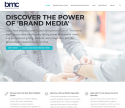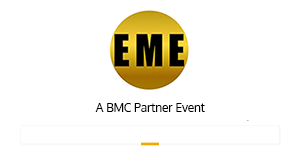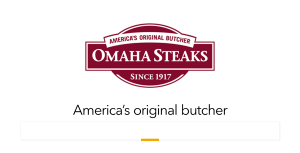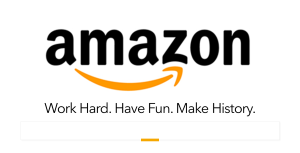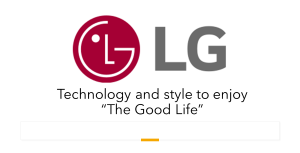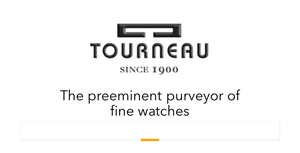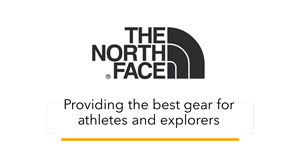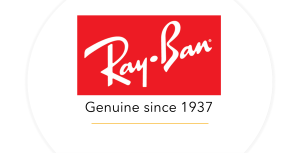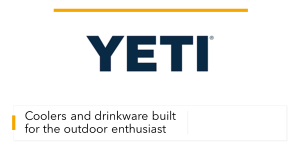Effective Practices: How to Select an Incentive or Recognition Company
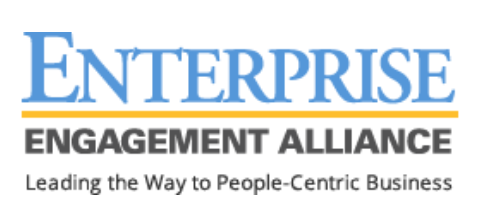 Surprisingly, fewer than 100 companies in the US say they provide incentives, rewards, recognition, gifting, and related services and technologies to help companies engage customers, employees, supply chain and distribution partners, and other stakeholders. Here’s how to determine the right type of company for your organization’s needs at a time when there is increasing demand for program design expertise, measurement, and thought leadership.
Surprisingly, fewer than 100 companies in the US say they provide incentives, rewards, recognition, gifting, and related services and technologies to help companies engage customers, employees, supply chain and distribution partners, and other stakeholders. Here’s how to determine the right type of company for your organization’s needs at a time when there is increasing demand for program design expertise, measurement, and thought leadership. By Bruce Bolger
1. Types of Incentive, Loyalty, Recognition, and Gifting Companies
2. How to Select the Right Type of Solution Provider for Your Organization
3. How to Evaluate Solution Providers
4. Business Models
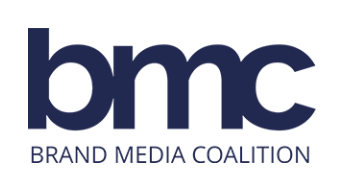 The last Incentive Federation study finds that US organizations alone spend upwards of $176 billion each year on incentive, recognition, loyalty and gifting programs, and yet the field is barely mentioned in business school training or the general business or trade media.
The last Incentive Federation study finds that US organizations alone spend upwards of $176 billion each year on incentive, recognition, loyalty and gifting programs, and yet the field is barely mentioned in business school training or the general business or trade media. A well-designed incentive, recognition, loyalty, or gifting program can energize your top employees, customers, distribution partners or other stakeholders and elevate the performance of the middle 60% by keeping people focused on the steps to success, making work or doing business more fun, and inspiring people to cooperate and innovate. On the other hand, a poorly designed program can reward the top 20% for performance they would have achieved anyway, discourage the middle 60% from even trying, create unhealthy competition, encourage unethical buying, sales, or accounting practices, or simply just waste money. In other words, the opportunity for success is about even with the opportunity for failure, which can damage morale, ignite turnover, or worse yet incite criminal behavior, as Wells Fargo can attest to.
When it comes to important decisions in accounting, law, engineering, architecture, etc., organizations usually turn to clearly trained and certified professionals, but because the field of incentives, loyalty, recognition are rarely taught in business school, if even mentioned in passing, most companies wing it—coming up with some kind of incentive, recognition, loyalty or gifting scheme with little to no formal scientific evaluation, design, or measurement. See RRN: ROI Measurement Veteran: IRR and MICE Markets Have Traditionally Feared Analysis,
Because so few people have ever heard of the incentive, rewards, and recognition field, most companies simply come up with their own schemes and purchase the rewards at retail or, if travel, often through a travel agent or corporate meeting planner. So, when determining what type of incentive company to use, it’s useful to know the different types of companies available; what services your organization specifically needs, and the size of your budget to determine the category of solution provider to select from.
1. Types of Incentive, Loyalty, Recognition, and Gifting Companies
Many well-known management consulting and advisory firms provide expertise on total rewards and compensation systems; employee and customer engagement assessment; and related analytics. The companies that more narrowly focus on incentive, reward, recognition, and gifting generally fall into six general categories.
1. Full-service engagement agencies offer a full suite of services, including assistance with program design, all types of rewards, travel, technology, communications, etc., for sales and non-sales employees; customers and distribution partners. Larger companies include EGR International, HMI Performance Incentives, Maritz, ITA Group, BI Performance. Most of these companies sell directly to corporations; a few such as Partners for Incentives, only sell through promotional distributors.
2. Boutique specialists. These consist of smaller companies, some in business for decades, that specialize in incentive and recognition programs for the mid-market and perhaps more specifically on incentive travel, other non-cash regards, or technology. These include companies Luxe Incentives, Fire Light Group, or Lorandus.
2. Recognition companies come from various backgrounds: Workhuman, Achievers, Kudos, etc. have their roots in technology; OC Tanner and Engage2Excel have their roots in commemorative rewards; at Appreciation at Work, the founder is a psychologist.
3. Enterprise engagement technology are platforms that connect all stakeholders with surveys/assessment, communications, rewards and recognition, wellness, safety, etc., provided most notably by CarltonOne’s Power2Motivate technology and Partners for Incentives.
4. Self-serve gifting and reward platforms have grown swiftly over the last few years, including—SmartGift by 1-800FLOWERS.com, Sendosa,Giftbit, Awardco. Note that some of these companies specialize in travel, gift cards, merchandise, or a combination of different types of rewards.
5. Promotional products distributors representing master fulfillment and incentive companies, and the brands and gift cards active in the business. Generally, the level of services offered by the distributors is based on the types of incentive or master fulfillment companies they bring to the table. A few of the largest recognition network, such as Halo, offer their own recognition platforms.
6. Master fulfillment companies provide brands and often customization and personalization sold mostly through incentive, recognition, loyalty, and promotional distributors. These include companies such as Links Unlimited, Power Sales, Pro Am Golf, and GGI Worldwide.
You can find most of the engagement boutique specialist, recognition, and technology solutions at EEXAdvisors.com. You can find leading master fulfillment companies and reward solutions at the Brand Media Coalition marketplace at BrandMediaCoalition.com.
For additional information on the different types of solution providers, here are three recent RRN market reports:
Incentive and Recognition Company Report. An overview of all the incentive and recognition companies that provide program and technology support in the IRR field based on how they tell their stories on their web sites.
Master Fulfllment Company Report. An overview of all the US master fulfillment companies that provide merchandise and gift cards for the IRR field based on how they tell their stories on their web sites.
What Is the Story With Incentive and Recognition Companies. An analysis of the web sites of the majority of companies that provide incentive and recognition services and technologies for incentives, rewards, recognition, and enterprise engagement.
2. How to Select the Right Type of Solution Provider for Your Organization
This process starts by determining your specific needs. Do you need help with program design, rules, any legal considerations, communications, technology, rewards, or are your needs more narrowly confined to a specific aspect of the process: design and measurement; reward or enterprise engagement technology; a specific type of reward, i.e. merchandise or gift cards with or without personalization; individual or group travel, or cash, etc.
By far, the most overlooked yet most important aspect of any type of engagement endeavor is program design, which includes: a clear understanding of the goals and objectives; what it’s worth to the organization and who and what are needed to achieve the goals; what obstacles or other stakeholders could stand in the way, etc. Because the subject is taught in almost no schools and covered only in a cursory manner in business and trade media, most marketing, sales, and human resources managers design the programs on their own, whether they have any training or not. Another factor is that most major incentive and recognition companies that provide program design and full-service implementation rarely will do business with a company without a budget of at least $250,000 in awards or at least $50,000 in equivalent fees, unless it’s part of a big enterprise with future potential.
Without that level of budget, most companies are likely consigned to the other categories more receptive to a smaller budget, such as some of the boutique firms and others handling an awards- or technology only solution, including any of the other solutions outlined above, based on whether they are willing to work with end-users or only with the resellers who support them.
The other rewards-focused options can be evaluated on their reward fulfillment capabilities; technology capabilities and user interface; reward options and business models; warehousing, logistics, and customization; specific areas of expertise (brands, gift cards, individual travel, group travel); industry knowledge, years in business, etc.
3. How to Evaluate Solution Providers
Obviously, the process of evaluating the category of solution provider required is based on anticipated requirements, which could include program design, implementation, and management; technology requirements; the specific types of non-cash awards desired, and the size of the budget. Again, because of the economics of the rewards business (see below), it’s difficult for larger incentive and recognition companies to support clients without at least $250,000 in gross award, technology, and other support services revenue.
Here are some of the considerations based on the type of services needed.
Program Design, Measurement, and Implementation
Organizations seeking serious support on the proper design, implementation and evaluation of incentive, recognition, loyalty, and gifting programs face the fact that there are very few seriously trained or certified program design specialists. The problem is magnified because most corporate human resources (HR), sales, and marketing managers charged with managing these programs themselves have little or no training in the field, often with little respect for the potential risks, or with little idea of who to call or how to objectively evaluate their capabilities.
Here are a few questions to ask of prospective experts on program design, measurement, and implementation:
1. What is their actual experience in these areas—can they provide specific case studies they have designed and implemented with outcomes?
2. What type of training and certification do they have—such as the CPIM program of the Incentive Marketing Association (the original version and no longer applicable preparation for certification which was created by the author of this article along with Rodger Stotz, a now retired former executive from Maritz), or in the case of travel, certifications from SITE (Society for Incentive Travel Excellence.)
3. Ask the prospective company to explain its framework for evaluating, designing, implementing, and measuring the outcome of the effort.
4. Inquire as to the sources of research and effective practices it draws upon for design; what types of measurement practices does it draw upon? Where does it go to keep up with the latest research and trends?
5. You can ask the company’s experts to explain the difference between and open- and closed-ended program; how to avoid program addiction; strategies to engage the midde-60%; the types of statistical process controls or other methods that can be used in program measurement; the difference between qualiitative and quantitative measues and how they are used together; the laws related to the use of non-cash rewards in recognition, safety, and wellness, and the engagement elements considered essential to success, etc.
6. What in fact is the background of the people who will be leading the design, evaluation, and implementation, starting with what you can find on their Linkedin profiles in terms of experience and verifiable accomplishments. Does the program design team consist of the salesperson or does the company draw upon program design advisors with verifiable expertise? If it’s the salesperson, the same questions above apply.
Fulfillment Expertise for Brands, Gift Cards, and Travel Rewards
Organizations in need only of specific technology and reward services can focus on the expertise and experience specifically related to the types of technology or rewards desired—gift cards, merchandise, individual and group travel, cash, or equivalents. These solution providers can be evaluated on traditional metrics of expertise and experience; sales and customer service standards, customization, and personalization capabilities; user and administrator experience; technology features and user experience; pricing, verifiable customer testimonials and case studies.
4. Business Models
Because of the difficulty of making money with traditional transparent business models, the IRR industry can appear to have opaque pricing models. Here are the various options you’ll encounter depending on the type of solution provider.
Full-service engagement agencies. Companies that help design, set up and implement programs will charge set up and management fees and additional fees for communications, events, technology, usually based on service requirements, as well as markups on rewards. While technology is often provided with set-up fees depending on the amount of customization and monthly maintenance versus per-seat charges, this may change as more companies adopt enterprise engagement technologies to align all engagement activities across stakeholder audiences in the way that customer relationship management (CRM) manages customer relationships. These companies may also charge fees based on points issued for activities performed or goals achieved, and for the rewards, customization, and personalization, and customer service to support them. Others charge for the points and the rewards all at once, making some portion of their monies on the points that go unredeemed, known as breakage.
Fulfillment oriented companies—merchandise, gift cards, travel, reward platforms. These companies usually work on a markup for end-users (if they sell direct) and/or a commission or margin for resellers. Merchandise discounts/markups can in some categories such as time pieces reach 30% or more but are much less in consumer electronics. Gift card markups and/or margins often hover between 2-3% and rarely up to 10%. Many resellers offering gift cards depend upon breakage to make money. (More on that below.) Travel margins can range from 10% and more for individual or group travel.
Breakage in points-based programs. Despite the best efforts to encourage employees, distributors, or consumers to redeem all their points, most don’t. Depending on the pricing model and program design, this can leave up to 25% of the award costs in play. If the end-user has paid for the awards with the points upon issuance, what happens to the points that go unredeemed? Some end-users know so little about the business they don’t bother to ask, but buyers have become increasingly savvy and it’s dangerous to leave such an important issue unaddressed. To address the issue, determine where for your program the value is being created—is your company paying the solution provider to help enhance performance or are you simply paying for rewards, fulfillment, and customer service?
1. If the solution provider is being paid to achieve specific goals by promoting specific actions, the company should be paid when those goals are achieved or actions occurred, regardless of when the people redeem their points for rewards. Presumably, in this case, the solution provider is being paid to activate behaviors, not sell rewards. Why should that solution provider have to wait until people eventually redeem the award? Of course, the supplier must be paid again for providing the award, the technology and customer services to support redemptions. This is the most transparent approach. The solution provider gets paid for results, and the buyer only pays for the rewards redeemed.
2. If the solution providers are being paid solely to provide the rewards and related fulfillment, they should be paid upon fulfillment and of course appropriate set up and support charges for technology; customer service; logistics; or fees for planning and/or deposits on group travel programs.
A note about payment terms. Some large companies are known to ask for extended payment terms; sometimes up to 120 days. Solution providers are not banks. It is unreasonable to request anything more than 45 days without offering some type of compensation in return.
Subscribe to RRN’s weekly e-newsletter.
Profit From the “S” of Environmental, Social, Governance (ESG)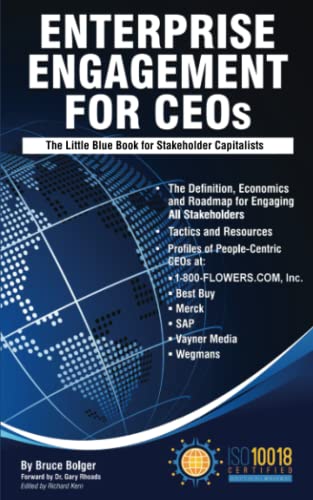
Through education, media, business development, advisory services, and outreach, the Enterprise Engagement Alliance supports boards, business analysts, the C-suite, management in finance, marketing, sales, human resources and operations, etc., educators, students and engagement solution providers seeking a competitive advantage by implementing a strategic and systematic approach to stakeholder engagement across the enterprise. Click here for details on all EEA and RRN media services.
1. Professional Education on Stakeholder Management and Total Rewards
Strategic Business Development for Stakeholder Management and Total Rewards solution providers, including Integrated blog, social media, and e-newsletter campaigns managed by content marketing experts.
4. Advisory Services for Organizations
Stakeholder Management Business Plans; Human Capital Management, Metrics, and Reporting for organizations, including ISO human capital certifications, and services for solution providers.
5. Outreach in the US and Around the World on Stakeholder Management and Total Rewards
The EEA promotes a strategic approach to people management and total rewards through its e-newsletters, web sites, and social media reaching 20,000 professionals a month and through other activities, such as:

Through education, media, business development, advisory services, and outreach, the Enterprise Engagement Alliance supports boards, business analysts, the C-suite, management in finance, marketing, sales, human resources and operations, etc., educators, students and engagement solution providers seeking a competitive advantage by implementing a strategic and systematic approach to stakeholder engagement across the enterprise. Click here for details on all EEA and RRN media services.
1. Professional Education on Stakeholder Management and Total Rewards
- Become part of the EEA as an individual, corporation, or solution provider to gain access to valuable learning, thought leadership, and marketing resources.
- The only education and certification program focusing on Stakeholder Engagement and Human Capital metrics and reporting, featuring seven members-only training videos that provide preparation for certification in Enterprise Engagement.
-
EEA books: Paid EEA participants receive Enterprise Engagement for CEOs: The Little Blue Book for People-
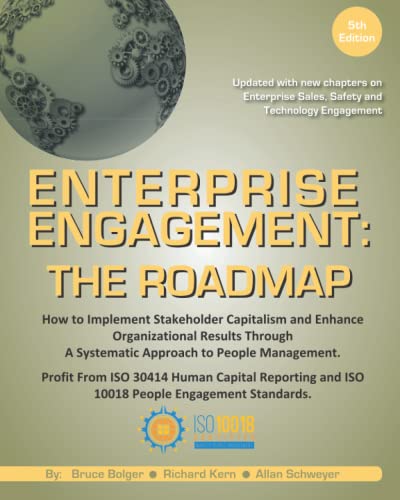 Centric Capitalists, a quick implementation guide for CEOs; Enterprise Engagement: The Roadmap 5th Edition implementation guide; a comprehensive textbook for practitioners, academics, and students, plus four books on theory and implementation from leaders in Stakeholder Management, Finance, Human Capital Management, and Culture.
Centric Capitalists, a quick implementation guide for CEOs; Enterprise Engagement: The Roadmap 5th Edition implementation guide; a comprehensive textbook for practitioners, academics, and students, plus four books on theory and implementation from leaders in Stakeholder Management, Finance, Human Capital Management, and Culture.
- ESM at EnterpriseEngagement.org, EEXAdvisors.com marketplace, ESM e–newsletters, and library.
- RRN at RewardsRecognitionNetwork.com; BrandMediaCoalition.com marketplace, RRN e-newsletters, and library.
- EEA YouTube Channel with over three dozen how-to and insight videos and growing with nearly 100 expert guests.
Strategic Business Development for Stakeholder Management and Total Rewards solution providers, including Integrated blog, social media, and e-newsletter campaigns managed by content marketing experts.
4. Advisory Services for Organizations
Stakeholder Management Business Plans; Human Capital Management, Metrics, and Reporting for organizations, including ISO human capital certifications, and services for solution providers.
5. Outreach in the US and Around the World on Stakeholder Management and Total Rewards
The EEA promotes a strategic approach to people management and total rewards through its e-newsletters, web sites, and social media reaching 20,000 professionals a month and through other activities, such as:
- Association of National Advertisers Brand Engagement 360 Knowledge Center to educate brands and agencies.
- The EEA Engagement widget to promote, track, and measure customers/employee referrals and suggestions that can be connected to any rewards or front-end program management technology.
- The Stakeholder Capitalism free insignia to promote a commitment to better business.
- The BMC Brand Club and transactional storefronts to educate corporate and agency buyers on the IRR market.
- The EME Gold program to educate the top 3% of promotional consultants on selling engagement and rewards services.



